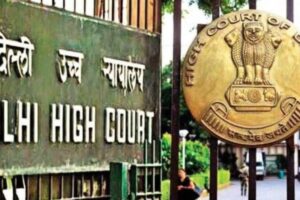
In the recent case of Kamlesh Devi v State of NCT of Delhi & Anr, the Delhi High Court made an important observation regarding the protection of minors from online threats. The Court highlighted that while educating children about ‘good touch’ and ‘bad touch’ is crucial, it may not be adequate to safeguard them in the virtual realm.
Justice Swarana Kanta Sharma emphasized the necessity of educating minors about ‘virtual touch’, which encompasses teaching them about appropriate online conduct, recognizing signs of potential harm, and understanding the significance of privacy settings and online boundaries.
Importance of Virtual Touch Education
The Court elaborated that similar to teaching caution in the physical world, it’s imperative to equip children with critical thinking skills to evaluate the credibility of online interactions and protect their personal information. This holistic approach aims to empower minors to navigate the online space safely and responsibly.
Thus, the Court urged relevant stakeholders to integrate education about ‘virtual touch’ into school curricula. It emphasized the importance of sending a clear message through its judgment to entities such as schools, colleges, the Delhi State Legal Services Authority, and the Delhi Judicial Academy. These institutions are encouraged to organize programs, workshops, and conferences focusing not only on traditional concepts like ‘Good’ and ‘Bad Touch’, but also on the emerging concept of ‘Virtual Touch’ and its associated risks.
The Court noted that in today’s digital age, where virtual interactions among teenagers are common, adolescents are often ill-prepared to recognize and address the potential dangers, such as human trafficking and other criminal activities, that lurk in the virtual realm.
The Case
Justice Sharma, in handling Kamlesh Devi’s plea regarding her involvement in a 16-year-old girl’s kidnapping, denied her bail. Devi, the mother of Rajiv, who befriended the minor online, allegedly kidnapped and confined her. The girl claimed she was sexually assaulted, forced into marriage for money, and made to interact with various men for their sexual satisfaction. The court forwarded the order to the Delhi Judicial Academy and Delhi State Legal Services Authority for compliance.
Read More: Supreme Court, Delhi High Court, States High Court, Other Courts, International





